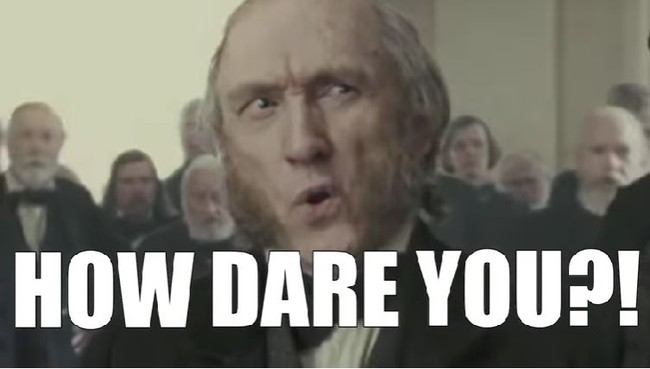ARTICLE AD BOX
LONDON — It was two weeks after Keir Starmer’s landslide election victory and far-right agitator Tommy Robinson had a question. “How many people here voted for Labour?” he asked an adoring crowd of 20,000 to 30,000, gathered at a rally in central London.
As his supporters booed the suggestion, Robinson asked the same question about the Conservative Party, to the same effect. However, when he next queried how many had voted Reform — the populist, right-wing political party ran by Nigel Farage — the boos turned to cheers.
But having appeared to help stoke the conspiracy theories fueling the outbreak of lawlessness and disorder which broke out in response to the shocking killing of three little girls in the northern England town of Southport, Farage is currently at pains to distance himself from the man seen by many as the figurehead of the rioting: Robinson.
The mass stabbing in Southport has sparked days of violence across the U.K, with hundreds arrested.
Just two weeks after Robinson paid fealty to Reform at the London rally, he was angrily tweeting at Farage, for suggesting Robinson was someone who “stir[s] up hatred” and helped incite the rioting.
Farage has been careful to both keep his distance from Robinson and condemn the violence. But he and his party spokespeople have been careful with their language, sometimes stopping short of outright criticism.
Keeping their distance
“These young lads that are going out, probably had one too many, they’ve got involved with the wrong crowd, they’re throwing stones, they’re damaging stuff,” Lee Anderson, Reform U.K.’s chief whip in the House of Commons, told GB News Tuesday, in one of the only examples of an MP trying to defend those rioting.
“These are not far-right thugs, they’re just young idiots who got carried away,” Anderson added.
So far, the riots have seen the protesters clash with police, target mosques and set alight a hotel housing asylum seekers. Hundreds gathered in cities Wednesday night to counter-protest amid warnings of more riots.
Farage is no friend of Robinson or the far-right — and in fact has long boasted that he has “done more than anyone else to defeat the far right in Britain.” He quit his former party, UKIP, in 2018 with a blast that it had become obsessed with Robinson.
Yet he has been criticized for helping to spark the initial riots in Southport, which saw a vigil for the victims hijacked after misinformation was spread online about the alleged attacker’s religious identity and immigration status. Farage questioned “whether the truth is being withheld from us” following the Southport incident.
Figures on the political left are among those who accuse Farage of lowering the tone political debate in the U.K.
 The riots have seen the protesters clash with police. | Jeff J Mitchell/Getty Images
The riots have seen the protesters clash with police. | Jeff J Mitchell/Getty Images“Nigel Farage has whipped up violence and incited hatred by consistently making totally inaccurate claims,” said Amanda Onwuemene, policing spokesperson for the left-wing Green Party.
“He has spent years encouraging racism and toxifying our public debate and has significant responsibility for the horrific violence we’ve seen over the past week,” she added.
Farage factor
In a testy, combative interview on LBC Tuesday, the Farage playbook for responding to the riots was clear.
After defending his earlier comments as “just asking questions” and denying that he helped incite the riots, Farage said he condemns “all acts of political violence.”
“At no point in the last 30 years have I ever encouraged political violence … I have nothing to do with any form of street violence,” Farage said.
Otherwise, in the interview and in a video posted on his X feed, Farage expanded on one of his three key arguments: that the violence isn’t just from the far-right.
“As with every major conflict in life, there is fault — serious fault — on both sides,” Farage said. He took aim at “Muslim extremist mobs” that have threatened journalists and clashed with protesters — a marked departure from the response from government figures who have focused on the more widespread violence caused by those linked to the far-right, rather than on the smattering of counter-protests that have involved violence.
Both Farage and several of his party colleagues have talked too in recent days about the “widespread concern” behind those rioting, and the Reform leader used the moment to call for the “end of mass migration now.”
Two-tier policing?
Farage then turned to a third point: “two-tier policing,” his claim — vehemently denied — that police take a different approach to certain groups in society, with a specific focus on comparing how police responded to 2020’s Black Lives Matter protests.
That claim, described as a non-issue by Prime Minister Starmer, has also been spread by right-wing agitators on X — including the site’s owner, Elon Musk.
And it’s also highly controversial, riling senior police officers who argue that different situations will always require different policing tactics and that the demographic of offenders doesn’t come into decision making.
“[The claim] not only undermines trust in the police, it puts police officers on the front line — who are working very long hours, doing very arduous work — at higher risk,” Tom Winsor, a former HM Inspector of Constabulary responsible for inspecting the police, told POLITICO.
“If people believe this two tiered policing nonsense, and [nonsense is] what it is, if they believe that they may be more violent towards the police,” Winsor said. He added that it was “revolting, ignorant and wrong” to describe Starmer as “two-tier Keir” — as Reform and Musk have.
 Hundreds gathered in cities to counter-protest amid warnings of more riots. | Carl Court/Getty Images
Hundreds gathered in cities to counter-protest amid warnings of more riots. | Carl Court/Getty ImagesBut Reform’s position is carefully triangulated — reflected in the fact that much of its new base, as acquired in their strong 2024 election showing, has views on the riots which differ from those of the political mainstream.
Polling by YouGov of British attitudes to the rioters found that those who voted for Reform U.K. in July were “significantly more likely than voters from other parties to support the recent unrest at protests, feel that it is justified, and sympathize with the views of those taking part.”
Finding a balance
Reform voters were also more likely to say that the police response to the unrest had been “too tough,” with 26 percent agreeing with that view compared to just six percent for the overall population.
On the other hand, plenty (43 percent) of Reform voters said the response had not been tough enough. For Farage, who has just finally been elected to the U.K. parliament at the eighth attempt, the challenge is now to keep both parts of this base onboard in a new role which sees him as effectively part of the political mainstream. Get the balance right, and he hopes his party can make even more of a breakthrough at the next election.
One senior Reform adviser, granted anonymity to speak frankly about party strategy, said Farage had struck the right balance in his response to the riots, by saying that “the violence has to stop.” But “that is not a reason to stop asking the questions that need to be asked,” the person added.
Given too that Britain’s far-right has no formal structure or specific parliamentary representation, Farage — who proved so adept at tapping into anti-immigration rage during the 2016 Brexit campaign — and his party calculate that Reform could offer a democratic home to some of the strong anti-migrant sentiments espoused on Britain’s streets in the last week.
Another YouGov poll, released Wednesday, showed that concern about immigration has shot up among Brits since mid-July.
Trevor Lloyd-Jones, who stood for Reform in the U.K. election in Aldershot, where a mob descended on a hotel housing asylum seekers, said “it’s absolutely right to be talking about solutions and about how our country got to this place.
“If I’m ever in doubt about these kinds of issues, all I know is to speak the truth. We have had 20 years of successive governments promising to bring down immigration, including this Labour government, and each time the public have been lied to,” Lloyd-Jones added.
One Labour MP in a seat with a significant Reform presence, also granted permission to speak anonymously, agreed that they had “no doubt” Farage would seek to capitalize on the wave of anti-immigration sentiment — but noted the party “don’t have the infrastructure at a local level” to shore up support by canvassing or signing up members in riot-hit areas.
Reform hopes to use its positive result in July’s election, in which it garnered four million votes, to grow its base of members and become a permanent fixture in Britain’s political scene.
Whatever happens next on Britain’s streets, Nigel Farage will be picking his words carefully.
.png)
 1 year ago
13
1 year ago
13








 English (US)
English (US)